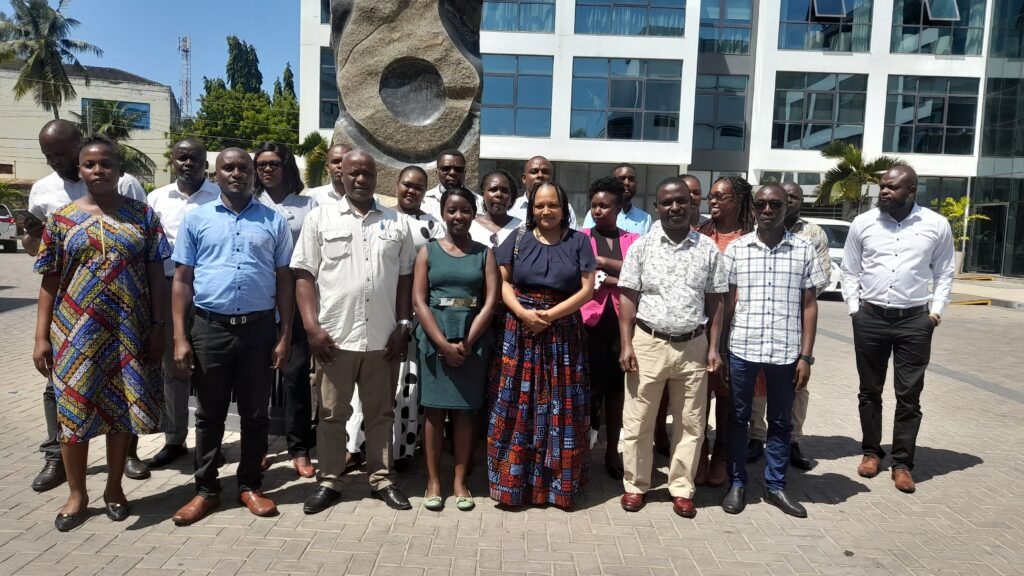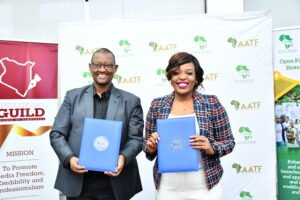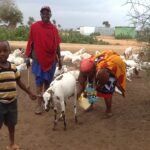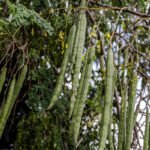By Murimi Gitari, June 4, 2024, Kenya’s Pest Control and Product Board (PCPB) has trained the country’s border officers in Lungalunga and Kilindini border points in combating the entry of illegal pest control products (PCPs) into the country.
The officers drawn from government agencies, regulatory bodies, law enforcement authorities that included the Kenya Revenue Authority (KRA), the Directorate of Criminal Investigations (DCI), the Anti-Counterfeit Authority (ACA), Kenya Bureau of Standards (KEBS), Kenya Plant Health Inspectorate Service (KEPHIS), Agriculture And Food Authority (AFA) and Veterinary Medicines Directorate (VMD) were undertaken through a training by officers from PCPB in Mombasa on Monday to strengthen surveillance for enhanced control of entry of illegal pest control products in Kenya.
The training is spearheaded by TradeMark Africa through the European Union’s Business Environment and Export Enhancement Programme (BEEP).
In recent years, Kenya has faced a growing threat from illegal pest control products (PCPs) entering its borders, posing significant risks to public health, agricultural productivity, and environmental sustainability.
Speaking during the training, PCPB manager in charge of compliance and enforcement Lawrence Kalawa said the board has had challenges in the past in the fight against illegal PCPs but are now focused dealing with these illegal products through information sharing with relevant officers and collaborations.
The board also has in the past raised concerns over the influx and usage of illegal pesticides into the mainstream markets in the country. The challenge of infiltration of illegal pest control products at border points has been most pronounced at the Kenya-Tanzania border points while the other entry point of concern are the Kenya-Uganda border points.
According to PCB Illegal pest control products have largely been traced to China and Malaysia, and enter Kenya through the port of Mombasa. The influx of these substandard and unauthorized PCPs jeopardizes the safety of consumers and the effectiveness of pest management strategies. In addition, it undermines the efforts of legitimate PCPs manufacturers, and results in interceptions of export produce due to presence of unauthorized PCP active ingredients.
Stanely Nganga, the PCPB Regional Manager at the coastal region highlighted the importance of the border point officers from various agencies collaborating together in safeguarding the country from hazardous products that are not only harmful to humans but also to the environment.
The training comprised of the border officers being shown on the identification of the illegal pest control products under different categories that include unregistered products, smuggled products and counterfeit products.
” Illegal pest control products are those products that do not comply with the provisions of the PCP Act Cap 346 Laws of Kenya. These illegal products mostly target areas of intense use or products that are of high demand especially those used in the horticultural sector,” the Region Manager explained.
He noted that unregistered products are those that are not registered locally by PCPB for use and they contain unknown products. PCPB has all the registered products on its website and the officers were urged to use the site to verify any product getting into the country at the border points. Any registered product must have a PCPB certificate had must also appear on its website according to Mr Nganga.
Smuggled products are the ones manufactured from other countries and introduced in Kenya without the due process as there is no authorization of their use in the country by PCPB. Any product manufactured outside the country must have local agents for distribution according to the compliance and enhancement manager.
He noted that there are however distributors who will copy a product and label it as theirs or as the original manufactures which is imitation of another product. Such, involves copying every detail of a product through the advancement of technology. He however noted that there is usually a very slight difference between the counterfeit and the original products which mostly happens in packaging.
“The quality of the labels of the unregistered products is poor and unapproved and such products have serious unknown human or animal health and environmental risks. They are also not effective products for control of crop or public health pests and diseases, hence lead to crop losses in terms of quantity and quality. The products may be locally manufactured or smuggled from outside the country,” he added.
Shaban Mududu who is a senior compliance and enhancement officer at PCPB also said that all registered products in Kenya, the description must be in two languages only, English and Kiswahile. He noted that any products whose description is in other foreign languages must be flagged as it means that product is illegal and not registered for use in the country.
There has been recent interception of huge consignments of illegal pesticides at the Port of Mombasa in the last four years
In the year 2020 a 40 ft. container imported as consolidated cargo, with 16,000kg of unregistered Greenleaf cockroach killing bait was intercepted at Kilindini. Two more containers of the same size were also intercepted in the same year by PCPB that were imported as consolidated cargo with 6000 pcs of unregistered mosquito coils while the other had 150 kg of mosquito coils at the Focus Container Freight Station (CFS).
The border point officers thanked TradeMark Africa, Rootooba and PCPB for the training with a number of them noting they were not aware if there are products that are not registered for use in the country as well as the counterfeit products. The officers confirmed working together in combating these illegal points at the border points for a safer country.
“The presence of officers responsible on dealing with counterfeit and illegal products must be felt at the border points. We will be involving PCPB and collaborate in dealing with these illegal pest control products,” David Rutoh, an officer from KRA said.
The Business Environment and Export Enhancement Programme (BEEEP), facilitating the training through TradeMark Africa aims to build on interventions already supported by the Government of Kenya and complementing the goal of the Integrated National Export Development and Promotion Strategy (INEDPS) that seeks to grow Kenya’s agricultural exports. The goal is to close the negative balance of trade through export growth, factor productivity and stimulating economic development and job creation, in a sustainable and inclusive manner. Other areas of support include harmonising trade processes and procedures, improving access to quality standards and phytosanitary measures, as well as enhancing capacity of public sector actors to implement necessary business reforms at the national and county levels.
PCPB will also be conducting trainings this week in Loitoktok for the Taveta, Olili and Loitoktok broder points officers and also in Busia for the border point officers in Busia and Malaba.








